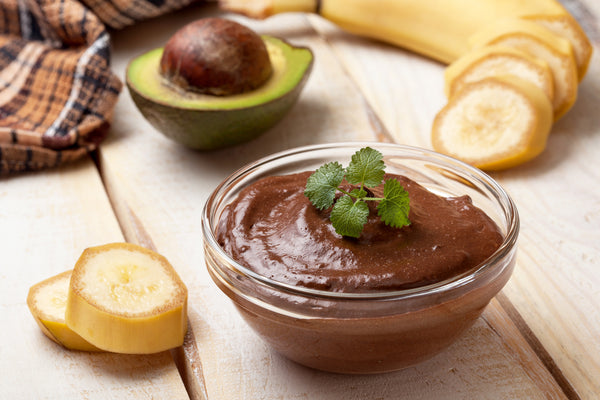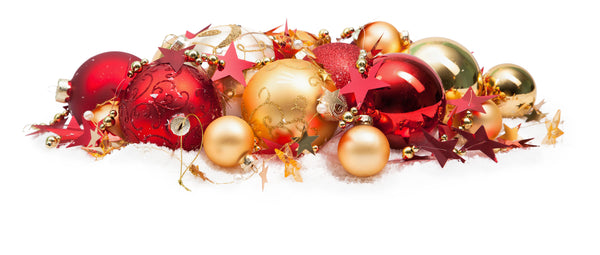A Calm, Content Christmas For All
Tis the season to be jolly, or so they say. However, for many of us, Christmas is one of the most stressful and busy times of the year. Party after party, family gathering after family gathering, picnics, coffee dates, barbeques and goodness knows what else? It really can take its toll, leaving us feeling depleted and fatigued. But have you ever considered what this time of year means for a child?
Before school is out they are swapping candy canes and chocolate Santa's in cute little handwritten Christmas cards. There are class parties with mountains of chips, soft-drink, pizza and lollies. At barbeques, there is more soft drink and ice cream for dessert. More chips and lollies at picnics. Then there’s the advent calendar!
The kids share a box of favourites at Grandma’s on Christmas Eve, and on Christmas day they are tempted with more sweets. Between Boxing Day and New Years, there are more social catch ups that involve food; typically of the sugary, refined carbohydrate nature. Then for the rest of the summer, until they go back to school, it’s trips to the pool or beach followed by an ice cream or a trip to a friend’s house where there will no doubt be more sugar lurking.
With all of this processed nothingness, combined with the late nights and overwhelming amount of stimulation during the day, it’s no wonder our kids are throwing tantrums left, right and centre, alternating, of course, with bouts of hyperactivity. It’s not a matter of opinion but a matter of fact: sugar is literally sending our kids crazy.

Refined white sugar, the starring ingredient in most popular holiday treats, has an excitatory effect on the nervous system, stimulating the brain in a way not dissimilar to cocaine. In fact, a study done with rats, where the rats were given both cocaine and white sugar, concluded that the dopamine receptors in their brains were more receptive to sugar than to cocaine…in other words, sugar may just be more addictive than this hardcore illicit drug.
Now I’m not comparing our children to rats or suggesting that you’ve been intentionally drugging your children. What I’m getting at is that while holiday treats are all very well in the short term, in the long term, we can’t ignore the fact that they change the ecology of gastrointestinal flora and alter nervous system function. At present, there is an epidemic of behavioural problems and learning challenges in our youth. How long is it going to take before we make the connection between what we eat and how the body responds?
Without nerding you out too much, allow me to explain, in simple terms, the science behind it all.
The microflora in your gut controls virtually all your body's systems to some extent, with particular emphasis on the digestive, nervous, endocrine and lymphatic systems. When gut ecology is ideal (higher ratio of beneficial flora: opportunistic/pathogenic flora) all of these systems will thrive. Digestion and excretion will be normal and painless. The body’s default state will be in parasympathetic mode; calm, collected, content. Illness will be rare and infection hard to come by.
However when gut flora is disturbed, often from diets high in refined carbohydrates and sugars (the bad bugs love to feed off this stuff, whereas beneficial flora likes fibre, fats and proteins) as well as environmental stressors, these systems begin to malfunction. The gut wall becomes permeable to bacteria and undigested food, which cross the blood-brain barrier and alter the messages relayed to the brain and therefore to the nerves in the entire body. Hormone production slows and substances like dopamine and serotonin fall by the wayside, leaving one with feelings of depression and despair. The immune system also becomes depressed, as a large portion of the immune system is located in the gut.
The occasional slice of pavlova at a celebration or a small drizzle of honey on your child’s porridge in the morning isn’t the problem. It’s the constant saturation of refined carbohydrates and simple sugars in your child’s day that has the potential to do a lot of damage. These sugars are absorbed almost instantaneously and used straight away for energy. This sounds like a good thing, however, the sugar is burnt up at an alarmingly fast rate and then the body pleads and begs for another hit, intuitively knowing that energy levels will crash without more sugar.
Carbohydrates such as brown rice, sweet potato, broccoli, almonds and avocado don’t cause the same problems. They contain lots of fibre and take longer to digest, meaning there is a slow and steady supply of energy that keeps the body going for far longer. Beneficial fats (coconut, olive oil, butter, tallow, etc.) and real-food proteins (meat, poultry, eggs, fish, nuts, seeds, sprouted legumes, etc.) are even better, as they are even more slow burning and have a very soothing effect on the nervous system, whilst the short-chain fatty acids feed the beneficial intestinal microflora, providing fuel for those protective bugs to thrive. Probiotic-rich foods will also restore any of the beneficial flora that a sugar indulgence damages, so including foods such as yoghurt or kefir prophylactically is very protective against the effects of occasional indulgences.
It would be almost cruel and very unrealistic to expect kids to abstain from all their favourite sweet treats this holiday season – so don’t worry, that is not what I am getting at here. I am merely suggesting that we a) reduce the amount of exposure to sweet treats and b) make sure that treats are eaten with a hefty dose of therapeutic fats and quality proteins, to balance out the blood sugar response and counterbalance the excitatory effects on the nervous system.
Healthful Christmas Treat Options
Below are some of my favourite treats that taste just as indulgent as the real deal, but offer the vital nutrients that will nourish your child and mellow the addictive and stimulating properties of sugar.

Chocolate mousse made with avocado, raw cacao, ripe banana and a pinch each of vanilla bean powder and cinnamon – the avocado and cinnamon both work wonders for controlling sugar-highs, whilst the banana is a source of sugar that also provides many essential nutrients such as B vitamins, magnesium and potassium.
Bliss balls made with dates, shredded coconut, cacao, coconut oil, and nuts. These taste like your classic Christmas truffles but are loaded with fats and proteins to calm the nervous system and the source of sugar, the dates, are full of healthy fibre which slows the sugar metabolism, lessening the negative effects of this simple macronutrient.
Nut butter fudge: Simply mix together a few spoonful's each of your child’s favourite nut butter and coconut oil in a small dish, adding a small amount of honey to taste and freeze until frozen solid. Give this treat to your child fresh from the freezer with a miniature spoon and watch them happily pick away at the sweet and creamy fudge. This is full of awesome fats and only a small amount of sweetness (depending on your child’s taste buds, you may not even need the honey at all), making it an almost perfect holiday (and rest of the year) treat.
Coconut cream ice-blocks: Mix coconut cream, berries and optional ingredients like chunks of banana, cacao nibs, a pinch of vanilla bean powder, etc. together and pour into ice-block moulds. Freeze until solid and serve for a deliciously creamy, sweet and satisfying treat. The fats in the coconut encourage the growth of beneficial gut bugs, keeping the opportunistic bugs (that feed off of sugar) at bay.
In addition to swapping your usual treats for the nutrient-dense and oh-so-satisfying alternatives above, remember to ensure that the rest of the time your child is eating lots of quality proteins, essential fatty acids and veggies and limit the consumption of sugary foods. Offer sparkling water with some lemon or lime in place of soft drink (or take the latter to friends if you’re not the host) and be sure to take your own treats everywhere you go (bliss balls or dates stuffed with nut butter are probably your best bets in these situations).
It may seem naff to say that it’s food which is causing our kids such agitation, stress and turmoil, but the science is stacking up and the anecdotal evidence is overwhelming! Every bite we eat goes to make and repair the cells in our body.
Are you up for the challenge? Ready to watch your kids thrive this Christmas? Take responsibility for your child’s behaviour (to the extent that you can - after all, they are independent beings). Then take the plunge, go the extra mile, make treats from scratch, up the good fats and schedule in some much-needed downtime as well. Among the craziness of the holidays, food can only do so much – rest and retreat are still essential.
Good Luck, you’ve got this! Here’s to a calm and content Christmas to all,
Kirsty xxx

